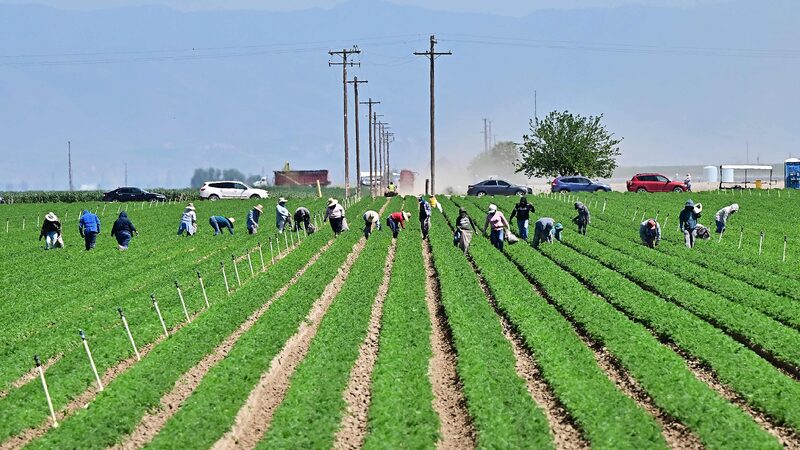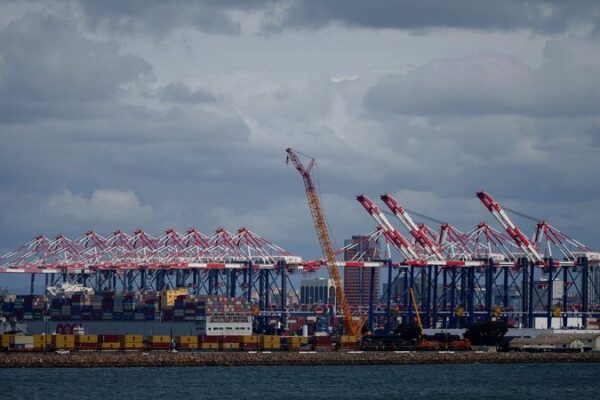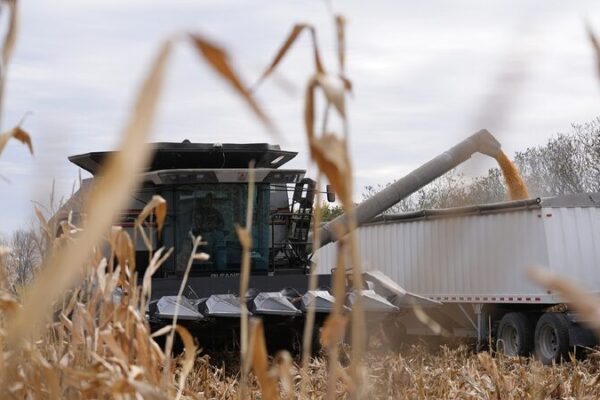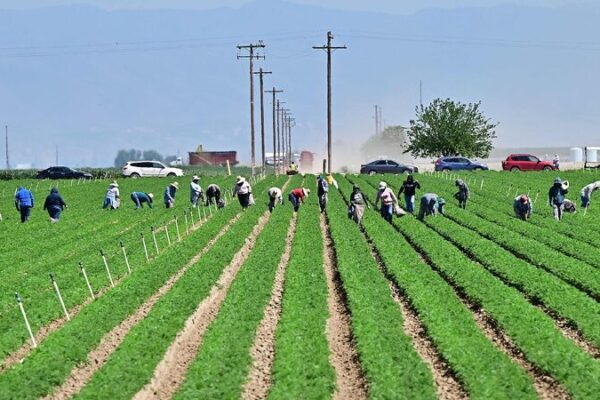California’s farmers are facing tough times as international trade disputes lead to new tariffs, disrupting global markets and affecting their livelihoods. The state’s $59 billion agricultural industry, the largest in the U.S., is experiencing rising costs for essential supplies and equipment due to tariffs, while export markets shrink as trading partners impose retaliatory measures.
“We got hammered.” Almond farmer Christine Gemperle from Stanislaus County expressed her frustration. “We lost the whole Chinese market to Australia,” she said, recalling similar impacts during previous trade tensions. Gemperle and her brother manage 55 hectares of almond orchards, and the uncertainty is taking its toll. “At this point, I’m on the verge of losing everything,” she added.
California produces 76% of the world’s almonds, making the industry particularly vulnerable. The Chinese mainland was once a key market but has shifted to alternative suppliers due to ongoing trade issues. Even as almond prices were beginning to recover, new tariffs have reignited concerns among growers.
Citrus farmers are also feeling the pressure. Bianca Kaprielian, co-CEO of Creekside Organics in Reedley, noted a sharp decline in orders from Canada after it imposed a 25% retaliatory tariff on U.S. goods. Her family farms 200 hectares of citrus, exporting oranges and lemons to Canada and other regions. “We have seen those orders go down or dry up,” Kaprielian mentioned. She fears that losing export markets could lead to an oversupply domestically, further lowering prices.
The wine industry hasn’t been spared either. Canada, which imports over $1 billion worth of California wine annually, has pulled American wines from store shelves in several provinces as part of its response to U.S. tariffs.
The situation mirrors previous trade disputes that cost U.S. farmers billions in lost exports. Despite federal support, many never regained their international market share. George Frisvold, an expert in agribusiness economics at the University of Arizona, pointed out that farmers earned significantly less during the prior administration despite increased subsidies. “There were payments to farmers, but they didn’t compensate for those losses,” he said.
The economic impact extends beyond lost sales abroad. Farmers are also grappling with higher costs for imported equipment and supplies because of tariffs on foreign goods. These added expenses are squeezing already thin profit margins.
The stress among farmers is evident. “Nobody wants to be in the center of chaos,” Gemperle shared, admitting that the uncertainty keeps her up at night. Kaprielian echoed her concerns: “It feels more chaotic than any time that I can remember.”
Reference(s):
cgtn.com








